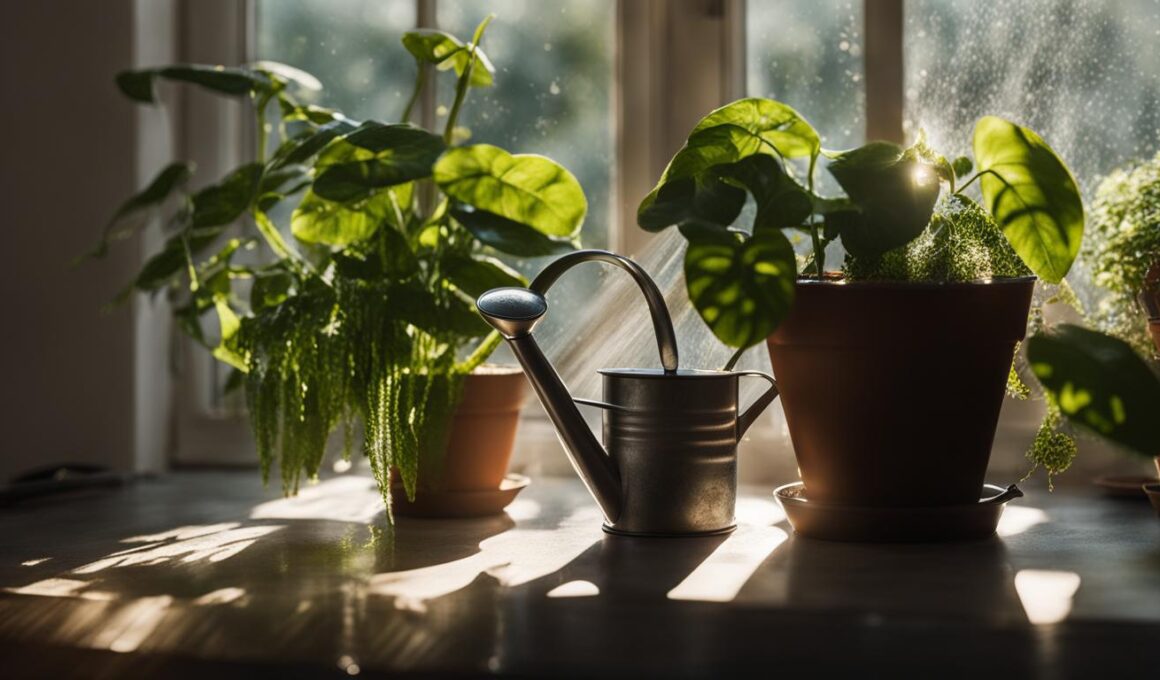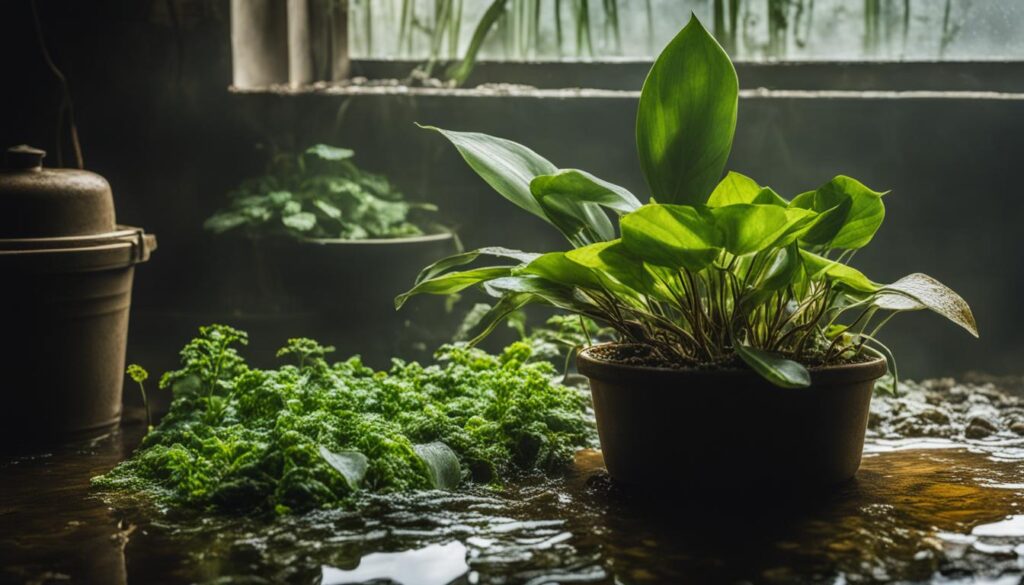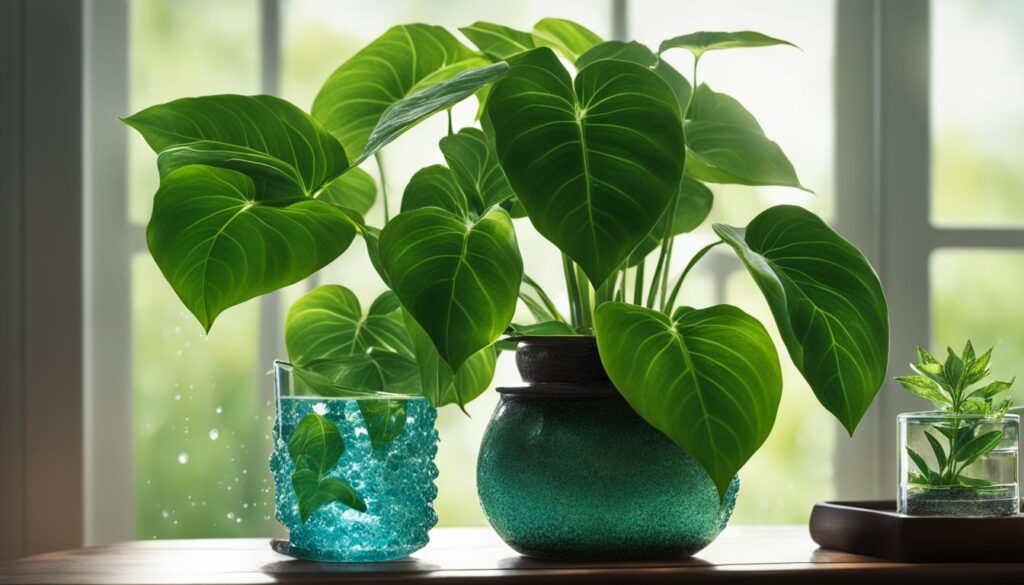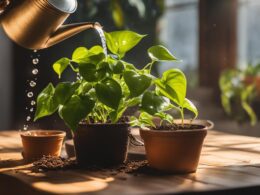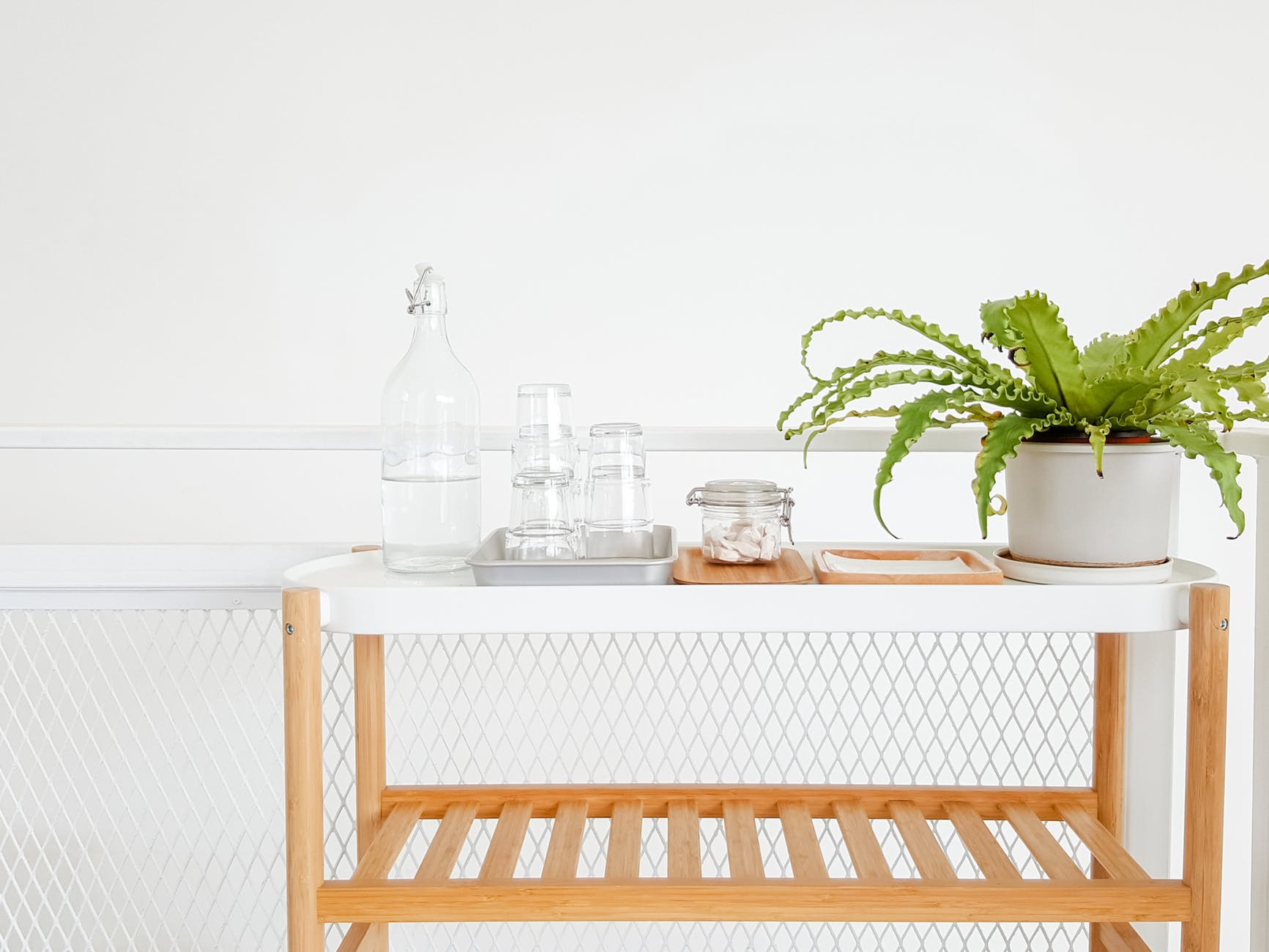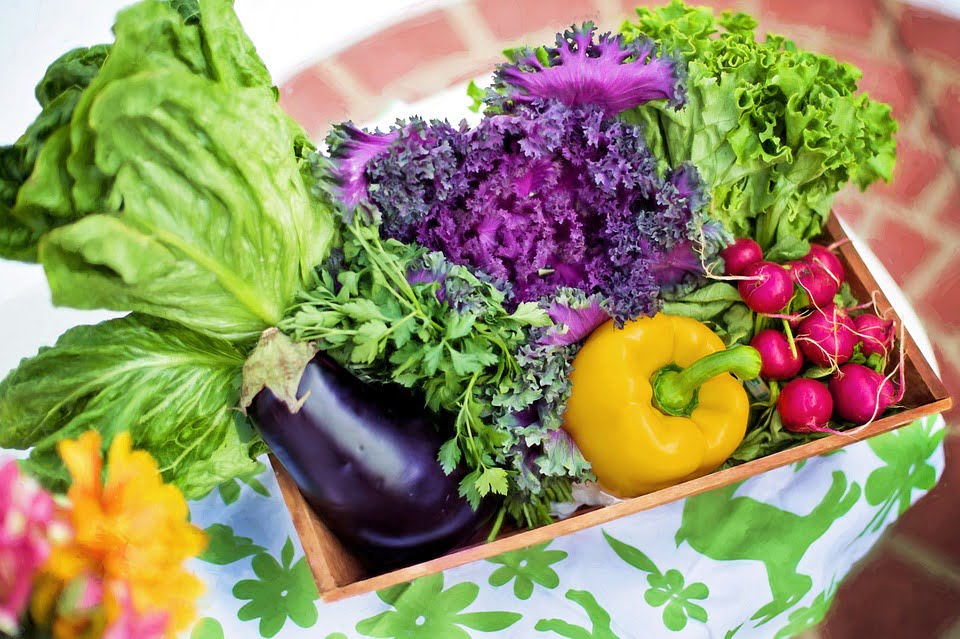Watering your houseplants with well water is a popular choice, but it’s important to consider the quality of the water before doing so. Well water can be beneficial for plants as it contains essential minerals like calcium and magnesium. However, it’s crucial to ensure that the well water is tested and purified to remove any harmful contaminants that can damage your plants.
Post Summary:
- Well water can contain beneficial minerals for plant growth, but it’s important to test and purify it before using it on your houseplants.
- Untreated well water may contain harmful contaminants that can harm your plants, such as salts, heavy metals, bacteria, and pathogens.
- The effects of contaminants in well water can range from over-fertilization and stunted growth to raised pH levels and poor nutrient uptake.
- Despite the potential risks, well water has advantages like affordability and nutrient content, especially for plants with specific pH requirements.
- Regular testing and purification of well water, as well as considering alternative water sources, can help ensure the health of your houseplants.
Is Well Water Safe for Plants?
When it comes to watering your houseplants, using well water can be a convenient and cost-effective option. However, it’s important to consider the safety of the well water before using it on your plants. Well water can be safe for plants if certain conditions are met, but it can also contain harmful contaminants that can negatively impact plant health.
Untreated well water may contain chemical contaminants such as salts, heavy metals, and waste products, which can harm plants. Additionally, biological contaminants like bacteria and pathogens can also be present in well water. These contaminants can affect the nutrient balance, acidity, and alkalinity of the water, potentially leading to poor plant growth.
To ensure the safety of well water for your plants, it’s crucial to test and purify the water before using it. Testing the well water can help identify any potential contaminants, while purification methods like reverse osmosis filtration and chlorine treatment can remove harmful substances. Regular testing and purification will help ensure that the well water used for watering your houseplants is clean and safe.
It’s important to note that the safety of well water for plants can vary depending on the specific well and its location. Factors such as proximity to farms or industrial areas, as well as the quality of the well construction and maintenance, can affect the water’s safety. It’s always recommended to regularly test and monitor the well water to ensure its suitability for your plants.
By taking the necessary precautions and ensuring the quality of the well water, you can safely use it to water your houseplants. Well water can provide additional benefits, such as essential minerals that can promote plant growth. However, it’s essential to prioritize the safety and well-being of your plants by regularly testing and purifying the well water before use.
| Contaminant | Potential Impact on Plants |
|---|---|
| Chemical contaminants (salts, heavy metals, waste products) | Can harm plants and affect nutrient balance |
| Biological contaminants (bacteria, pathogens) | Can negatively impact plant health |
The Effects of Contaminants in Well Water on Plants
Contaminants present in well water can have a significant impact on the health and growth of plants. Understanding these effects is crucial for maintaining the well-being of your houseplants and ensuring their optimal growth. Here are some key effects that different contaminants can have:
Nitrates:
Excessive nitrates in well water, often found near farms, can lead to over-fertilization of plants. This can result in algae growth, negatively affecting the overall health and appearance of your houseplants.
Iron:
High levels of iron in well water can cause bronzing foliage and stunted growth in plants. This mineral can accumulate over time, impacting the plant’s ability to absorb other essential nutrients.
Calcium:
Excess calcium in well water can raise the pH level of the water. This can have a negative impact on germination and the growth rate of plants, ultimately affecting their overall health and development.
Salt:
High levels of salt in well water can inhibit the uptake of water and nutrients by plants. This can lead to poor growth, wilted leaves, and overall reduced vitality. It’s crucial to monitor and manage salt levels to ensure optimal plant health.
These are just a few examples of the effects that well water contaminants can have on plants. It’s important to be aware of the specific contaminants in your well water and take appropriate measures to mitigate their impact. Regular testing, purification, and considering alternative water sources can help ensure the health and well-being of your houseplants.
| Contaminant | Effect on Plants |
|---|---|
| Nitrates | Over-fertilization, algae growth |
| Iron | Bronzing foliage, stunted growth |
| Calcium | High pH, impact on germination and growth rate |
| Salt | Inhibited water and nutrient uptake, poor growth |
Benefits of Using Well Water for Houseplants
Watering your houseplants with well water can provide several advantages that contribute to the health and growth of your plants. Well water is often nutrient-rich, containing essential minerals like potassium, calcium, iron, and magnesium. These nutrients are vital for plant development and can help promote lush foliage, vibrant blooms, and strong root systems.
Additionally, well water is readily available and more affordable compared to other water sources. Having a well on your property means you have access to a consistent water supply without relying on municipal water systems. This can be especially beneficial for avid gardeners with a large number of plants to hydrate.
Well water may also contain beneficial microorganisms that can enhance plant health and nutrient absorption. These microorganisms can form a symbiotic relationship with plants, helping them break down organic matter in the soil and improving nutrient availability. This can result in healthier and more resilient plants.
Using well water can be particularly advantageous for plants that require a specific pH range for optimal growth. Unlike tap water, which can have varying pH levels depending on your location, well water’s pH tends to be more stable. This consistency in pH can be beneficial for plants that prefer acidic or alkaline conditions, ensuring their nutrient uptake and overall well-being.
Nutrient Content of Well Water vs. Tap Water
| Nutrient | Well Water | Tap Water |
|---|---|---|
| Potassium | High | Variable |
| Calcium | High | Variable |
| Iron | High | Low |
| Magnesium | High | Variable |
Table: This table compares the nutrient content of well water and tap water. Well water is shown to have higher levels of potassium, calcium, iron, and magnesium compared to tap water, making it a more nutrient-rich option for your houseplants.
Before using well water on your houseplants, it’s important to test and purify the water to ensure its quality. Regular testing and purification will help eliminate any potential contaminants that may harm your plants. By taking these precautions, you can enjoy the numerous benefits that well water provides, promoting thriving and flourishing houseplants.
Testing and Purifying Well Water
Before using well water to water your houseplants, it is crucial to test and purify the water to ensure its safety and quality. Testing well water allows you to identify any potential contaminants that may be present, while purification methods help remove these contaminants, making the water suitable for your plants.
There are different ways to test well water for plants. You can send a sample of your well water to a laboratory for professional testing or use a home water testing kit for DIY testing. These kits typically include test strips or reagents that can detect various contaminants such as bacteria, nitrates, pH levels, and heavy metals.
Once you have identified any contaminants in your well water, it’s important to purify it before using it on your houseplants. One common method of purifying well water is by using reverse osmosis filters. These filters utilize a semi-permeable membrane to remove contaminants, ensuring that the water is clean and safe for your plants.
“Regular testing and purification help ensure the safety and quality of the water for your plants.”
In addition to reverse osmosis filters, you can also consider adding chlorine to your well water to kill bacteria and other harmful microorganisms. It’s important to follow the recommended dosage and allow the water to sit for a while to ensure the chlorine dissipates before using it on your plants.
By regularly testing and purifying your well water, you can provide your houseplants with clean and safe water that promotes their growth and overall health.
| Contaminant | Testing Method | Purification Method |
|---|---|---|
| Bacteria | Water testing kit or laboratory testing | Chlorine disinfection or reverse osmosis filters |
| Nitrates | Water testing kit or laboratory testing | Reverse osmosis filters |
| pH Levels | Water testing kit or laboratory testing | Adjustment using pH buffers |
| Heavy Metals | Laboratory testing | Reverse osmosis filters |
Table: Testing and purification methods for common contaminants in well water.
Alternatives to Well Water for Watering Houseplants
While well water can be a convenient and beneficial water source for watering houseplants, there are alternative options available if you don’t have access to a well or want to explore different sources. These alternatives can provide your plants with the necessary hydration while ensuring their health and growth. Here are some alternatives to consider:
Rainwater
Rainwater is a natural and cost-effective option for watering your houseplants. You can collect rainwater in rain barrels placed outside your home. Rainwater is generally free from contaminants and has a balanced pH level, making it ideal for most plants. However, it’s essential to ensure that the collection and storage system is clean to prevent any potential contamination.
Filtered Tap Water
If you have access to tap water, using a water filter can help remove any impurities and chemicals that may be present. Filtration systems such as activated carbon filters can effectively eliminate chlorine, heavy metals, and other harmful substances. This filtered tap water can be a suitable alternative for watering your houseplants.
Distilled Water
Distilled water is another excellent option for watering houseplants, especially if you’re concerned about the quality of your water source. Distillation removes impurities and minerals, leaving behind pure water. It’s important to note that distilled water lacks essential minerals, so it’s advisable to supplement your plants with appropriate nutrients.
By considering these alternatives, you can ensure that your houseplants receive the right amount of water without compromising their health. It’s crucial to choose a water source that suits the specific needs of your plants, providing them with the necessary hydration and nutrients for optimal growth.
Conclusion
Watering your houseplants with well water can be a viable option, provided that you take the necessary precautions. Testing and purifying your well water is crucial to ensure that it is free from harmful contaminants that can negatively impact your plants. Regular testing and purification help maintain the safety and quality of the water.
Despite the potential risks, well water offers several benefits for your houseplants. It is often more affordable than other water sources and contains essential nutrients that promote healthy plant growth. Well water can also be advantageous for plants that require a specific pH range for optimal development.
However, it’s important to be mindful of the potential effects of contaminants in well water on your plants. Excessive nitrates, high levels of iron, excessive calcium, and excess salt can all have adverse effects on plant health and growth. By understanding these effects, you can take appropriate measures to mitigate them.
Ultimately, whether you choose to use well water or explore alternative water sources for your houseplants, the key is to prioritize the safety and well-being of your plants. Regular testing, purification, and considering alternative water sources when necessary will help ensure that your houseplants thrive and flourish.
FAQ
Can I water my houseplants with well water?
Yes, you can water your houseplants with well water. However, it’s important to consider the quality of the water before doing so.
Is well water safe for plants?
Well water can be safe for plants if it meets certain conditions. It should have the right balance of nutrients, be free from harmful bacteria, and not be too acidic or alkaline.
What are the effects of contaminants in well water on plants?
Contaminants present in well water can have various effects on plants. Excessive nitrates can lead to over-fertilization and algae growth, high levels of iron can cause bronzing foliage and stunted growth, and excess salt can inhibit water and nutrient uptake in plants.
What are the benefits of using well water for houseplants?
Well water has several benefits for houseplants. It is often more affordable than other water sources and contains essential nutrients like potassium, calcium, iron, and magnesium.
How can I test and purify well water for my houseplants?
You can send samples of your well water to a laboratory for testing or use home water testing kits for DIY testing. Purification methods include using reverse osmosis filters and adding chlorine to kill bacteria.
What are the alternatives to well water for watering houseplants?
If you don’t have access to well water or want to explore other options, you can use rainwater collected in rain barrels, distilled water, filtered tap water, or bottled water that meets quality standards.
Can I use untreated well water on my houseplants?
It is not recommended to use untreated well water on your houseplants as it may contain harmful contaminants that can damage your plants.





